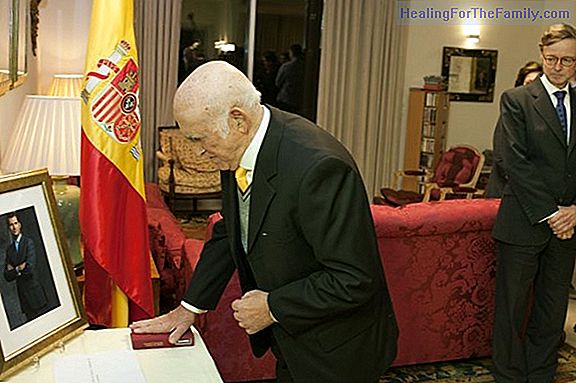Tips to educate a child as a leader
They say that unconditional love sabotages the child becoming the leader, I say that the fundamental basis is the unconditional love of the parents but without overprotection. They are two different things and people tend to confuse. Overprotecting a child or pampering it materially is not a good ed
They say that unconditional love sabotages the child becoming the leader, I say that the fundamental basis is the unconditional love of the parents but without overprotection. They are two different things and people tend to confuse.
Overprotecting a child or pampering it materially is not a good educational base, but neither for a leader nor for any child in the world, only tyrants of this kind of permissive education would emerge (exactly the same would happen with a too restrictive one). All education must be balanced so that the basis of social and emotional development of the child is right.
Four tips to educate a child as a leader

Children are born with innate social skills and great leadership skills that are often lost or enhanced depending on the type of stimulation and education received at home. So, how should a child be educated so that it could empower the leader and not become a simple follower without personality or criteria of its own?
1. The first thing that must be taken into account for a child to become a leader is to see that their decisions count at home. With things as simple as deciding what to wear in the morning, choosing the restaurant to eat on his birthday, making him a participant for some house decisions, asking for an opinion ... everything counts so that they feel that they are taken into account.
2. Children can say and decide even if they are small, they are much smarter and can have a great capacity for judgment, something that the adult often forgets. But it is appropriate to guide them in those decisions in the form of a recommendation so that they understand what would be the best decision but that they are the ones who finally take it, even if they are wrong ... because mistakes are learned.
But it does not mean much less giving them the power of absolute decision but only that they realize that what they say is useful and what they do, too. It is not necessary to force them to do something they do not like, like pointing to football if they just want to play the piano ... they would only feel rejection of football, it is better to decide what they like because they will enjoy much more. Da 3. Give the right options
to make the right decision , not to let them do (or not) what they want and want at each moment, but to give them the options they can choose and they are the ones who choose what makes them feel better4.
Successful rewards can also be a good incentive . But watch out! When I speak of reward, I mean that if the child wants a video console, he will have to save it to buy it and thus feel the satisfaction of achieving what is proposed, for example.Or a reward would be appropriate when it does not touch you in the household chores table to wash the dishes for example, and it does. Then a prize would be a good idea for you to see ese that effort is rewarding un (a prize can be a hug or watching a movie together, it does not have to be something material). But remember that
in family obligations should not be rewarded never because it is a task that should be done as an obligation at home.












